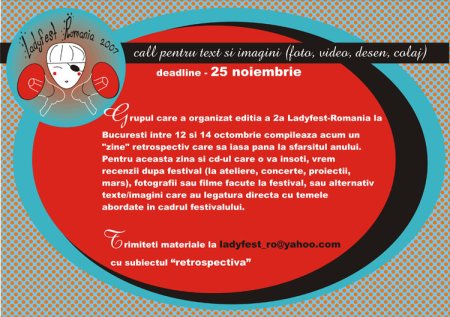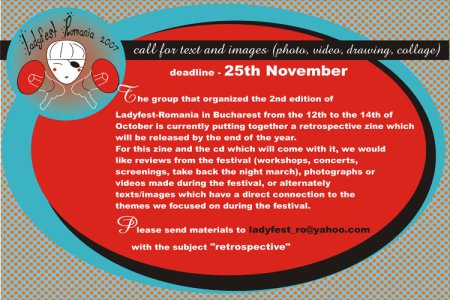de Doina
De vreo doua luni ma gandesc ca as avea ceva de spus in legatura cu violenta culturala. Este un concept destul de greu de explicat, cu toate ca suferim cu totii consecintele lui.
Specialistii spun ca fiecare cultura are propriile reguli si norme referitoare la comportamentele, atitudinile si credintele considerate ca fiind potrivite, diferentiind si etichetand nu persoane, ci categorii sociale. Cultura se manifesta prin prejudecatile pe care le avem – fata de femei si barbati, fata de romi, musulmani, atei, copii si soacre. Lucrurile pe care le facem intr-un anume fel pentru ca asa ni s-a transmis prin educatie, prin modelul social, prin faptul ca «toata lumea face/spune la fel». Si e mai simplu sa inghiti pe nemestecate o idee colectiva decat sa te apuci sa o diseci. Mda! Suna destul de complicat.
Dar hai s-o luam altfel! Daca v-as spune ca titlul – citat dintr-o reclama – constituie o forma de violenta culturala m-ati crede? O sa-mi spuneti ca n-ati simtit aceste efecte. O! Ba da! Aceasta fraza traseaza un profil feminin. Creeaza o imagine despre modelul femeii in subconstientul colectiv. In ciuda aparentei unei dulci ironii, pe care o poti privi amuzata, pentru ca esti convinsa ca nu te priveste, mesajul este: “femeile stau pe tocuri, deci nu gandesc”.
O sa ma intrebati, si ce pot face eu impotriva acestei violente? Sunt prea mic, prea singur, prea putin important ca sa pot face ceva in privinta asta. Si acesta este un stereotip cultural. Vi s-a inoculat ideea ca nu puteti face nimic. Ca nu depinde de dumneavoastra, si atunci n-are rost sa va implicati.
In ceea ce priveste reclama, nu stiu ce veti face voi. Eu voi ataca firma care transmite un mesaj nepotrivit, acolo unde pe cei cu putere de decizie ii doare: la buzunar. Prin urmare nu voi mai cumpara in vecii vecilor un produs de la o firma care imi spune ca nu gandesc pentru ca sunt ocupata cu statul pe tocuri, deci sunt femeie, recte proasta. Nici sampon si nici vreun alt produs.
Asta pentru simplul motiv ca sunt o persoana pasnica, adepta a metodelor non-violente de rezolvare a conflictelor.
Desi, dac-ar fi sa ma gandesc bine….
[“Dragoste fara griji”]
Dorinta mea de a pune in discutie violenta culturala nu a pornit de la o reclama. Reclama a fost doar catalizatorul.
Totul a inceput de la o statistica efectuata de un ONG care ajunsese la concluzia ca suntem pe primul loc in Uniunea Europeana… la avorturi. Continue reading


